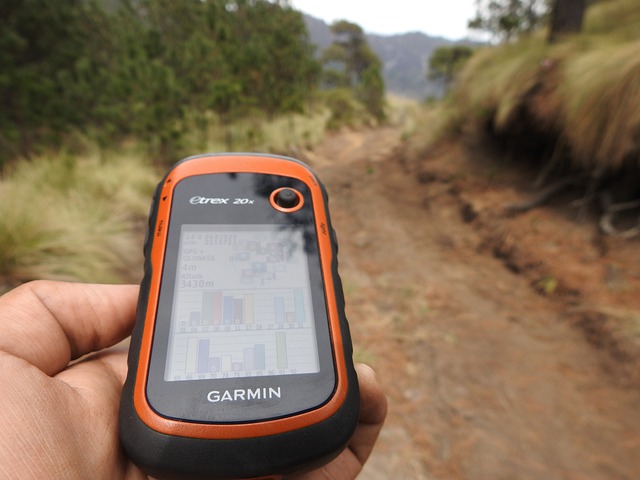A little over a year ago Gary Burrell passed away in Kansas. That name probably doesn’t ring any bells, but most of us have benefited from one of his inventions. Burrell used his background in marine and aviation electronics and worked with fellow engineer, Min Kao, to develop an affordable Global Positioning System, or GPS, device that has revolutionized our travels and made road atlases obsolete.
The two men combined their first names and started the Garmin company in 1989. The relatively small startup today employs 1300 workers at 60 locations around the world. It reported 1.3 billion dollars of earnings in 2018 and helped many of us get where we wanted to go.

Burrell and Kao used sensors from satellites circling earth to create handheld devices that pinpoint the holder’s location and chart a course to any selected destination. The technology has now been incorporated into cell phones and has been used locate missing children and track criminals. GPS systems are now also standard on most new automobiles creating space in our glove compartments for something other than hard-to-fold roadmaps.
As is the case with every gadget, however, GPS devices have their limitations too. For starters, the user has to select their own endpoint based on personal goals. Although they can warn us of traffic jams and construction slow-downs, GPSs are incapable of advising us that our selected destination might not be a good one. The individual user has to do his or her own research and then choose one option from infinite possibilities. Once we do, the GPS can then tell us the most efficient route to get us there.
In addition, GPSs are limited to physical addresses. They cannot help us chart our courses through life involving career selections, marital companions, entertainment options, nor choices of friends. Each of these must be navigated using guidance from other sources. We’re also on our own to map out paths to personal joy, happiness, and prosperity.
An even greater limitation is that of a GPS’s inability to direct us eternally. When I read of his death last June, I had to wonder if Gary Burrell knew how to get to heaven. Although virtually every location on earth is accessible through the device he created, that contraption cannot locate spiritual destinations.
Thankfully, not only did God grant these two men the intelligence to develop a tool that benefits many, He has also provided tools to guide us in these other areas of life as well. He gave us consciences and brains to aid us in collecting information, evaluating options and choosing wisely. He gave us parents, friends, teachers and pastors to help us find our way through life’s maze of choices. Best of all, He gave us a book that provides direction and advice for even the most difficult decisions.
The Bible also maps out our way to eternal joy in heaven. Jesus stated plainly, “I am the way, the truth, and the life. No one comes to the Father (God) except through me.” Although a GPS can direct me to Richmond via many alternate routes, Jesus is the only roadway to eternal life. Fortunately, He is loving enough to accommodate all who travel His way, but His path is also narrow excluding all other religions and methods.
Traveling Jesus’ exclusive route to heaven involves turning from our sins and asking Him to forgive us. It requires receiving His grace rather than depending on our own good works. And it includes following His teachings and guidance going forward.
As we reflect on the benefits we enjoy from GPS technology, let us thank God for its inventors. Let us also thank Him for the direction He provides in other areas of life and may we follow His guidance that we might enjoy the eternal destination of heaven with Him.
Blessings, George